Alice Rivaz (14 August 1901 – 27 February 1998) was a Swiss writer and feminist.
Contents
Alice Rivaz | |
|---|---|
 Rivaz in 1995 | |
| Born | Alice Golay 14 August 1901 Rovray, Switzerland |
| Died | 27 February 1998 (aged 96) Genthod, Switzerland |
| Nationality | Swiss |
Alice Rivaz (14 August 1901 – 27 February 1998) was a Swiss writer and feminist.
Alice Rivaz | |
|---|---|
 Rivaz in 1995 | |
| Born | Alice Golay 14 August 1901 Rovray, Switzerland |
| Died | 27 February 1998 (aged 96) Genthod, Switzerland |
| Nationality | Swiss |
She was born Alice Golay in the small Swiss municipality of Rovray, in the Canton of Vaud, the only child of Paul Golay and Ida Ettler, both strong Calvinists. Her mother had been a deaconess before deciding to leave that life to marry, while her father was a school teacher at the time of her birth. With a growing embrace of socialism, he later gave up that career and became a writer for the leftist periodical, Le Grutléen , for which the family moved to Lausanne.
Alice Rivaz' later writings are thought to reflect the conflict the couple experienced as a result of their differing points of view, with her mother's piety butting up against her father's political convictions. [1]
At the age of 25 Rivaz moved to Geneva, where she spent the rest of her life. She originally studied music, training to become a pianist. After several years of work with the International Labour Organization she turned to writing, and became one of the foremost French language writers of Switzerland. [1] She died in that city at the age of 96 and was buried at the prestigious Cimetière des Rois.

In her birthplace there is a commemorative plaque. In Geneva a street and a College were named after her. And since 2002 there is even an Intercity train called Alice Rivaz.
Rivaz began working on her first novel around 1937, which came to be titled Nuages dans la main (Clouds in your Hands), published in 1940. Her novel Jette ton pain (Cast your Bread), published in 1979, is considered her finest work. [1] Her writings are known for dealing with women in art and in the family, as well as having feminist themes. Along with novels, short stories, essays and diaries she also did a study of poet Jean-Georges Lossier.

Guillaume Apollinaire was a French poet, playwright, short story writer, novelist and art critic of Polish descent.

Marguerite Germaine Marie Donnadieu, known as Marguerite Duras, was a French novelist, playwright, screenwriter, essayist, and experimental filmmaker. Her script for the film Hiroshima mon amour (1959) earned her a nomination for Best Original Screenplay at the Academy Awards.

Frédéric-Louis Sauser, better known as Blaise Cendrars, was a Swiss-born novelist and poet who became a naturalized French citizen in 1916. He was a writer of considerable influence in the European modernist movement.
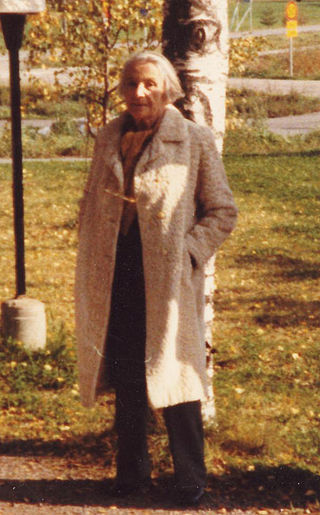
Nathalie Sarraute was a French writer and lawyer. She was nominated in 1969 for the Nobel Prize in Literature by Nobel Committee member Lars Gyllensten.

Jean-Marie Gustave Le Clézio, usually identified as J. M. G. Le Clézio, of French and Mauritian nationality, is a writer and professor. The author of over forty works, he was awarded the 1963 Prix Renaudot for his novel Le Procès-Verbal and the 2008 Nobel Prize in Literature for his life's work, as an "author of new departures, poetic adventure and sensual ecstasy, explorer of a humanity beyond and below the reigning civilization".
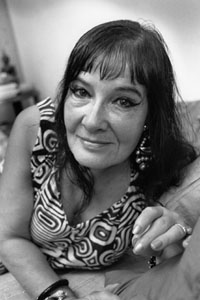
Grisélidis Réal was a writer and sex worker from Geneva, Switzerland.

Andrée Chedid, born Andrée Saab Khoury, was an Egyptian-French poet and novelist of Lebanese and Syrian descent. She is the recipient of numerous literary awards and was made a Grand Officer of the French Legion of Honour in 2009.
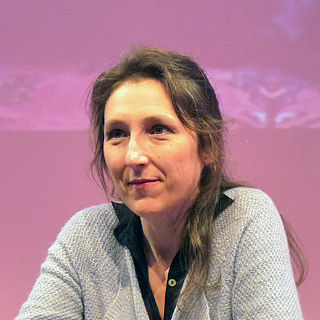
Marie Darrieussecq is a French writer. She is also a translator, and has practised as a psychoanalyst.

Sarah Kofman was a French philosopher.
Rose Laurens, previously billed as Rose Merryl, was a French singer-songwriter, known for her 1982 single "Africa", a top-three hit in several European countries. She was also famous for portraying the character of Fantine, on the original 1980 French concept album of Les Misérables, singing "L'air de la misère" and "J'avais rêvé d'une autre vie" two songs later adapted into English as "On My Own" and "I Dreamed a Dream" respectively.
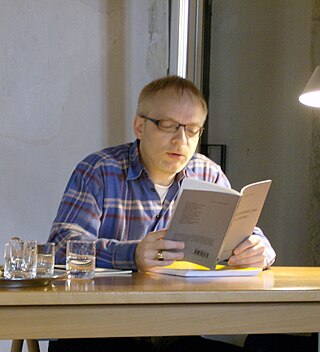
Markus Hediger is a Swiss writer and translator.

Nadine de Rothschild is a French author and former actress. She is the widow of banker Edmond Adolphe de Rothschild, a member of the Rothschild family.

Agnès Desarthe is a French novelist, children's writer and translator.

Laurence Suhner is a Swiss science fiction writer and graphic artist.

Ananda Devi Nirsimloo-Anenden, also known as Ananda Devi, is a Mauritian author writing mainly in French. She is the 2024 recipient of the Neustadt Prize, known as the "American Nobel."

Marquise Lepage, is a Canadian (Québécoise) producer, screenwriter, and film and television director. She is best known for her 1987 feature Marie in the City , for which she received a nomination for Best Director at the 9th Genie Awards in 1988. She was also a nominee for Best Live Action Short Drama at the 14th Genie Awards in 1993 for Your Country, My Country . She was hired by the National Film Board (NFB) as a filmmaker in 1991. One of her first major projects for the NFB was The Lost Garden: The Life and Cinema of Alice Guy-Blaché, a documentary about female cinema pioneer Alice Guy-Blaché.
Corinne Chaponnière is a Swiss-Canadian writer and journalist.
The Schiller Prize was a Swiss literary award which was established in 1905 to promote Swiss literature and was awarded until 2012 when it was replaced as a national literary award by the Swiss Literature Awards.

Lynn Bertholet is a transgender Swiss woman, bank executive and photomodel. She is also co-founder and chairperson of charity ÉPICÈNE, a volunteer public utility body which aims to welcome and support anyone facing transidentity issues.
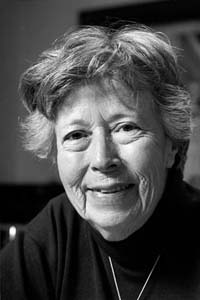
Yvette Z'Graggen was a Swiss writer and translator.